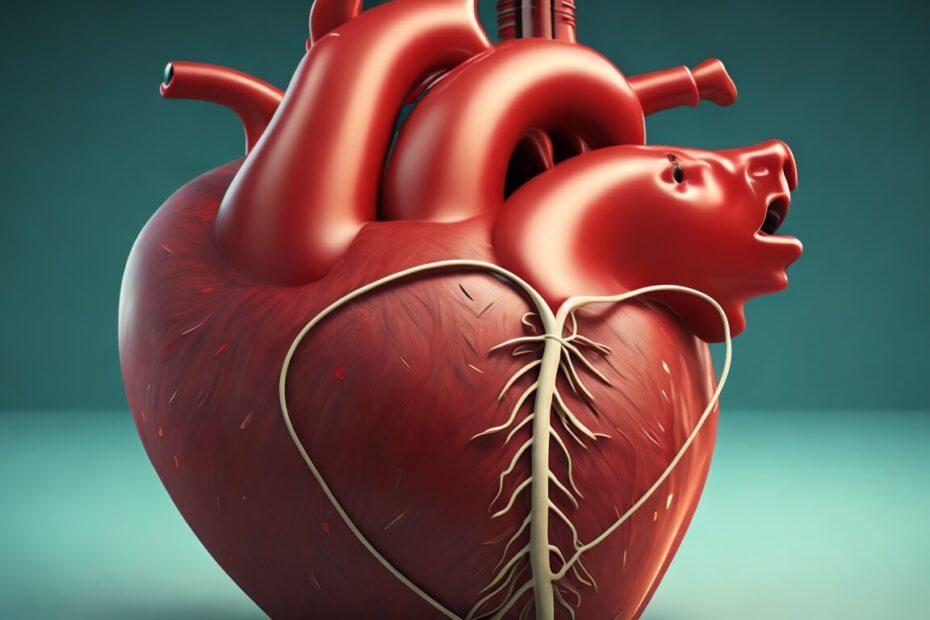Experiencing heart palpitations can be a worrisome and unsettling sensation. The irregular, arrhythmic beats can lead to anxiety and concern about underlying heart problems. However, it’s important to understand that there are various factors that can contribute to palpitations, and not all of them are directly related to the heart. In this article, we will explore the common causes of heart palpitations and focus on the number one remedy that can effectively alleviate this condition.
Understanding Heart Palpitations:
Heart palpitations are characterized by irregular heartbeats that may feel like a racing, fluttering, or pounding sensation in the chest. They can occur spontaneously or during periods of physical exertion, stress, or rest. While palpitations can sometimes be a symptom of an underlying heart condition, it’s essential to consider other potential causes before jumping to conclusions.
Common Causes of Heart Palpitations:
- Stress: Stress can significantly impact the cardiovascular system, including the electrolytes involved in heart function. Stress-induced palpitations are not uncommon, and managing stress levels can help alleviate this symptom.
- Caffeine: Excessive consumption of caffeine, a stimulant, can affect the heart and lead to palpitations. It’s important to moderate caffeine intake and be aware of the sources beyond coffee, such as energy drinks and certain medications.
- Wine and Sulfites: Wine, particularly its alcohol content or sulfites, can trigger palpitations in individuals who are sensitive to these substances. Pay attention to your body’s response to wine consumption and consider alternatives if necessary.
- Gluten: Gluten, a protein found in certain grains, can cause gut-related issues that indirectly affect the heart. Digestive disturbances and a congested gallbladder can contribute to palpitations. If you suspect gluten sensitivity, it may be worth exploring dietary adjustments.
- Food Allergies: Food allergies can cause spikes in pulse rate, leading to palpitations. This connection falls under the category of gastrocardiac syndrome, where certain foods can trigger not only palpitations but also heartburn, bloating, and chest pain.
- Medications: Several medications, including sinus decongestants, antibiotics, antifungals, thyroid medications, antipsychotics, and antidepressants, can affect heart function and contribute to palpitations. If you are taking any of these medications and experiencing palpitations, consult your healthcare provider.
- Hyperthyroidism: Although less common, an overactive thyroid (hyperthyroidism) can lead to palpitations and severe arrhythmias. Proper diagnosis and management of thyroid conditions are essential in addressing this cause.
- Electromagnetic Fields: Strong electromagnetic fields in your environment, such as those generated by electronic devices, can disrupt the electrical balance of the heart and result in palpitations. Identifying and minimizing exposure to these fields may help alleviate symptoms.
- Over-Exercise: Intense and excessive exercise without adequate recovery and rest can strain the heart and lead to palpitations. Balancing exercise routines and ensuring sufficient recovery time can mitigate this cause.
The Best Remedy for Heart Palpitations:
Magnesium Deficiency: One of the most common and overlooked causes of palpitations is magnesium deficiency. Magnesium is an essential electrolyte involved in maintaining proper heart function. Many individuals are deficient in magnesium due to a lack of dietary intake or factors that deplete magnesium levels, such as stress and certain medications.
Increasing magnesium-rich foods, particularly leafy green vegetables, can help replenish magnesium levels. Aim for seven to ten cups of vegetables or salads per day to meet your magnesium needs. Additionally, magnesium glycinate supplements can be used to support magnesium levels in cases of deficiency.
Conclusion:
Heart palpitations can be distressing, but they are often manageable once their underlying causes are identified. By addressing common triggers like stress, caffeine, dietary sensitivities, and ensuring sufficient magnesium intake, you can effectively alleviate palpitations. However, it’s crucial to consult with a healthcare professional for a proper diagnosis and personalized advice based on your specific situation. Taking proactive steps to manage your heart health and adopting a holistic approach to well-being will contribute to a healthier heart and a reduced incidence of palpitations.
